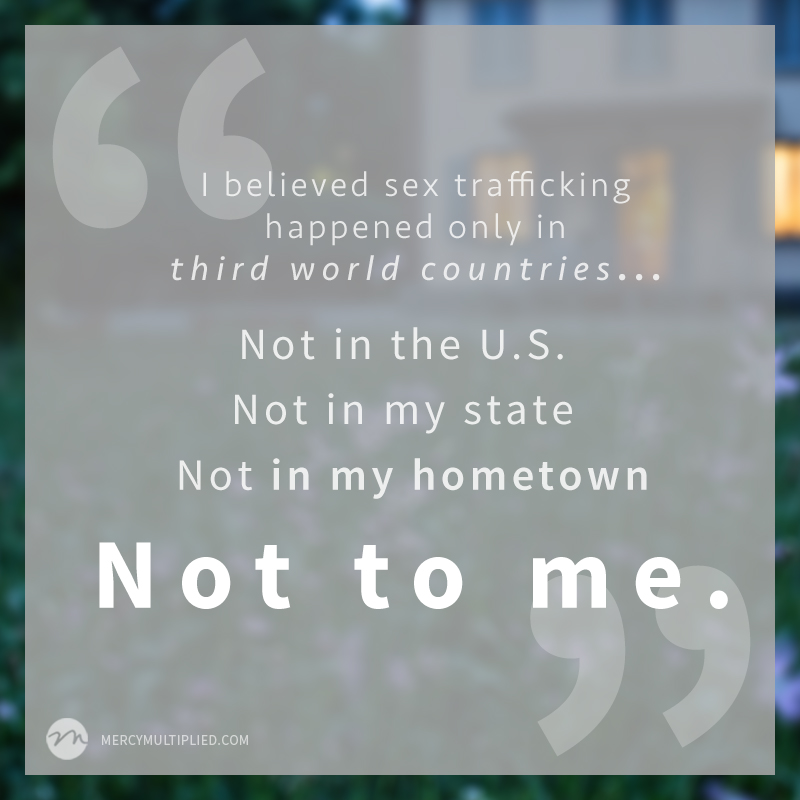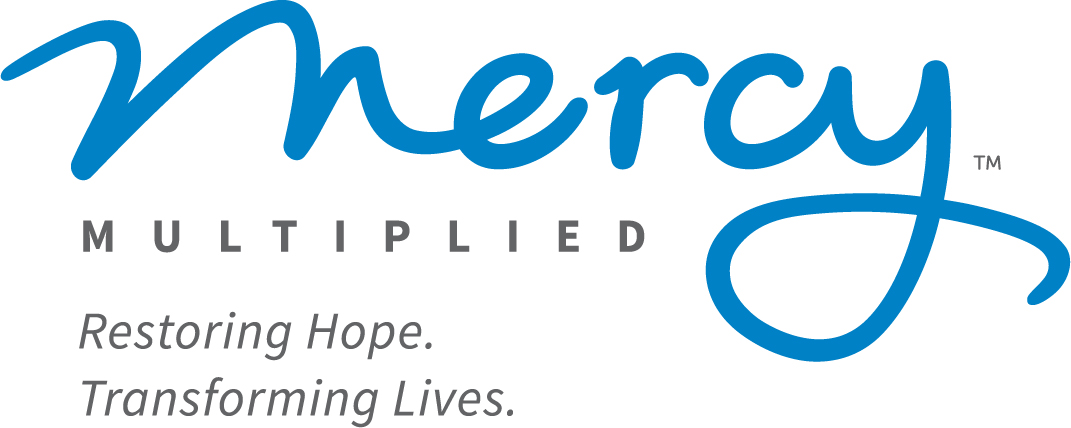January is National Slavery & Human Trafficking Prevention Month. We are honored to share the brave and beautiful words of 2015 Mercy graduate Rachel, as she shares her personal story of trafficking and the possible misconceptions the public still holds.
According to U.S. Federal law, sex trafficking can be defined as, “the recruitment, harboring, transportation, provision or obtaining of a person for the purposes of a commercial sex act, in which the commercial sex act is induced by force, fraud, or coercion or in which the person induced to perform such an act has not yet reached 18 years of age.”
According to the U.S. Department of State, The Facts About Child Sex Tourism, approximately 100,000 to 300,000 children are at risk of becoming victims of sex trafficking each year in the United States alone. Victims of sex trafficking represent a range of backgrounds in terms of age, nationality, socioeconomic status and education, but one characteristic that they usually share is some form of vulnerability.
I was one of those vulnerable 300,000. I was just six years old when I was sold for the first time into the sex trafficking industry, making me significantly younger than the average girl who enters the industry. I did not go by choice, but who does? I did not go by force, either. I was coerced in ways my six-year-old brain could not yet comprehend.
My biological parents were both alcoholics; my mom had a mental illness, and they both worked long hours. The abuse started occurring during the danger zone of three to five p.m., when children are out of school and parents are still at work. From the outside looking in though, everything in my life was perfect. I grew up in a middle-class family, with two kids who were both on the honor roll and were in the gifted program; my parents were still married, and both held highly esteemed jobs.
It all happened in my neighbor’s home, unbeknownst to my parents. My neighbor began sexually abusing me at the tender age of five. Sexual abuse can be defined as inappropriate, unwanted touching, the forcing of one to touch the abuser, and the coercing of one to watch pornography. It all started out so loving and caring. It was the way he “loved me.” During this time, I believe, he was grooming me, essentially preparing me to encounter many more men later.
As time progressed, his love toward me changed. He became more violent, more aggressive and more harmful to my body. By the age of six, my neighbor was trafficking me for sex. I was being sold to multiple men on a weekly basis in my neighbor’s home. After they had done whatever they pleased with me, I was forced to get up, dress myself and head home as if nothing had ever happened. I made minimal money, but to me, as a young child, the money that I did make was a lot of money. I now believe this money was a tactic, to not only silence me, but to reinforce my belief that what was happening was completely normal. I was sold, money was offered up and I was essentially held hostage at my neighbor’s home until the “deed” was done, until I had done my “job” and my “duty.” This made the situation even more confusing.
I was taught by this neighbor to always behave and always do as I was instructed, or else I wouldn’t make any money for him or me. I was taught “appropriate sexual noises” that meant pleasure and was told to never cry because that would mean less money for my trafficker and me. I thought it was cool to go to school with money—it made me more liked by my friends, and that meant the world to me as a young, naive six-year-old.
As things progressed over time, his violence and aggression toward me continued to worsen. At age seven I realized, after being raped for the first time, that what was happening in my neighbor’s home was NOT normal. It was not okay. It no longer was the way he “loved me.” It felt more like the way he hated me. He assured me that he had had intercourse with me (a word I couldn’t even define at that age) because he loved me and cared for me. I knew otherwise by this point, but I was terrified to speak up about the trafficking because of what might happen if I did speak up.

I was 18 when I found out my trafficker had died in a car accident, and I was furious with the Lord. I felt like my abuser had gotten away with what he had done to me. I remember praying that day, despite being so angry, and the Lord spoke into my heart, “My dearest Rachel, My judgment is greater than anything man could ever offer.” I remember finding such solace and peace in that, a peace I have continued to rest in since then.
You’re probably asking yourself now, “How does this random girl’s story relate to me?” My story relates to you because in this day and age, and at your present life stage, you could be one of the vulnerable. Your friend could be one of the vulnerable ones. Your sibling could be one of the vulnerable ones. You could maybe even already be involved with sex trafficking and be completely unaware.
Signs of trafficking to look for include: a sudden change in academic performance, gaps in memory, resistance to being touched, avoiding eye contact and, if the trafficker is present, an inability to speak for oneself, unexplained bruises and scars. Drug and alcohol addictions may also be signs, because traffickers will sometimes drug their victims to maintain control over them. Additionally someone being trafficked may be trying to numb out and not deal with the reality of their situation. Other signs include living in an abusive, unstable home, or randomly having large sums of money—money made from being sold to Johns (a slang term for buyers). These are just a few of the signs that exist of someone being trafficked, and one or more sign doesn’t necessarily equate to trafficking. (Polaris Project, Recognizing the Signs: 2016).
All in all, trafficking can happen to anyone. Whether six, 16, or 26, male or female, black or white, Asian or Hispanic, lower-class, middle-class or upper-class—there are no boundaries to who can be selected by a trafficker. But I’m here to say that if you or someone you know has been or is being trafficked, there is hope. It took me awhile to find and trust this hope, but by the grace of God, I now trust that the Lord has a plan for me—He has one for you, too.
Today I leave you with this challenge: Stand up for yourself, your friends, your family and even the people you barely know. Be bold. Stand up. Stand out. Speak out!
“We only have two choices—to do something or to do nothing…”
Which will you choose?
Mercy Multiplied wants to equip you! Take a look at this Advocate Tool Kit to help you take action today, the entire month of January, and every day beyond. We’ve included tips to help you recognize the signs and symptoms of trafficking, spread awareness, and utilize resources to report trafficking behavior.
Report Suspected Trafficking : National Trafficking Hotline: 1 (888) 373-7888






